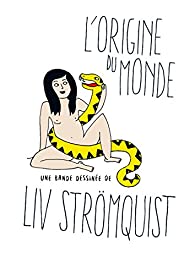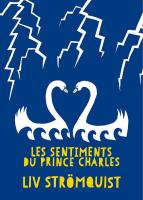beyond binaries
a collaborative page for all your feminist art, writings, films, ramblings & explorations
_ _ _ _ _ _ _ _ _ _ _ _ _ _ _ _ _ _ _ _ _ _ _ _ _ _ _ _ _ _ _
Everyone can edit this page, which makes it vulnerable but also powerful! To ensure a positive experience, please follow these basic rules:
1. Do not edit or delete someone else's post without their consent.
2. However, feel free to engage with and respond to posts should they elicit pleasure, discontent, questioning, ...
3. Practice care. That means be respectful of others, be open to understanding, be kind.
how to survive the end of the world
a podcast series by the brown sisters, who are "learning from the apocalypse with grace, rigor and curiosity."
Quick how-to for the inexperienced:
Hover over objects to check if they are a link!
Type /edit at the end of the url to enter editing mode, sign in with the credentials provided on Canvas. Consult hotglue.me for tips, videos and tools to learn more cool editing options. Exit editing mode by deleting /edit from the url.
Have fun!
from here:
BOOKSHELF...
All About Love (bell hooks)
This book really opened me to seeing love more as a practice than an event. And also, to question the learned behaviors we reproduce in our relationships of all kind (their source, meaning, ...).
Would recommend!
... AND REVIEWS!
Sister Insider: Holding space for Black women’s anger (R. Volkers)
Céline Sciamma, Adèle Haenel and Noémie Merlant about the film "Portrait of a Lady on Fire"
This quote from the interview stuck with me:
"We have seen in art history, often, how there has been this one brain thinking for everyone, and in the end this way of thinking is a sort of seed of oppression, you find it everywhere in fact, while actually collaboration is how artworks are made I think. [...]. More than this, I think this is how we can invent societies, that is to say, I think this seed is as present in art as in politics."
The film itself is beautiful; emotional, sensual and political all at once.
Can't stop watching it!
Amarantha: I think this is the most beautiful movie I've ever had the pleasure to watch. Talk about a non-phallic imaginary!
TEDWomen
Percussionist Simona Abdallah takes the stage with a rapturous bang of the darbuka, a drum of Middle Eastern origins traditionally played by men. With a striking sound and crisp beats, she plays two songs and invites everyone to join the rhythm.
Kimberlé Crenshaw The urgency of intersectionality
Simona Abdallah
Beats that Break
Barriers
Now more than ever, it's important to look boldly at the reality of race and gender bias -- and understand how the two can combine to create even more harm. Kimberlé Crenshaw uses the term "intersectionality" to describe this phenomenon; as she says, if you're standing in the path of multiple forms of exclusion, you're likely to get hit by both. In this moving talk, she calls on us to bear witness to this reality and speak up for victims of prejudice.
Suheir Hammad
Poems of War, Peace, Women, Power
Poet Suheir Hammad performs two spine-tingling spoken-word pieces: "What I Will" and "break (clustered)" -- meditations on war and peace, on women and power. Wait for the astonishing line: "Do not fear what has blown up. If you must, fear the unexploded."
Vagina (Naomi Wolf)
This book, as the back reads; "radically changed how we think about, talk about and understand the vagina - and consequently, how we understand women and sexuality."
This statement could not be more true. I found the book super interesting and made me realise how little women are taught about their own bodies and the power it holds.
Would recommend reading this book.
Adrienne Rich
Translations
December 25, 1972
You show me the poems of some woman
my age, or younger
translated from your language
Certain words occur: enemy, oven, sorrow
enough to let me know
she's a woman of my time
obsessed
with Love, our subject:
we've trained it like ivy to our walls
baked it like bread in our ovens
worn it like lead on our ankles
watched it through binoculars as if
it were a helicopter
bringing food to our famine
or the satellite
of a hostile power
I begin to see that woman
doing things: stirring rice
ironing a skirt
typing a manuscript till dawn
trying to make a call
from a phonebooth
The phone rings endlessly
in a man's bedroom
she hears him telling someone else
Never mind. She'll get tired.
hears him telling her story to her sister
who becomes her enemy
and will in her own way
light her own way to sorrow
ignorant of the fact this way of grief
is shared, unnecessary
and political
Reading-Related Content
Wendy Brown (1988), '"Supposing Truth were a Woman": Plato's Subversion of Masculine Discourse'
Post any additional articles you found while doing your readings!
In this text, Wendy Brown offers a different reading of Plato. She argues that Plato challenges dominant ideas of masculinity, which were hitherto associated with heroism, the quest for political power and monetary gain, in favor of philosophy.
Brown notes that Plato in fact acknowledges a bodily dimension to truth-seeking, but that he ultimately fails to synthesize all of his thoughts.
Medusa with the head of Perseus
(Luciano Garbati, 2008)
We can contrast this other re-interpretation with Cixous' laughing Medusa... On the one hand, a Medusa who reclaims power, but maybe reproduces a story of dominance. On the other, a Medusa who reveals herself as joyous, not concerned with male violence.
I think both are challenging in their own right, especially given what they do have in common: Medusa is fully human, she is embodied - note how realistic the statue is compared to other classical depictions of women - and she is not monstrous, but righteous and free.
Feminism in Saudi Arabia
In the course Middle East Politics, we got to read a very interesting text about feminism in Saudi Arabia, a country where you would perhaps not expect large feminist movements. If you are interested, you can find it in the chapter "From Hasm to Hazm" in this ebook:
Feminist Pedagogy in a Time of Coronavirus Pandemic (LINK)
Karin A. Martin (1998) has done sociological research about the question of how children in preschool get their bodies gendered by the school's (hidden) curriculum.
She found that much of the disciplinary behaviour directed at the children is largely rooted in gender difference. This reinforces gendernormative behaviour and ideas.
https://www-jstor-org.eur.idm.oclc.org/stable/pdf/2657264.pdf?refreqid=excelsior%3Ae53d65170d80683d4d8ba9a464309b86
Share your thoughts!
The movie The Danish Girl has been at times either heavily praised or criticized for its portrayal of a transgender character. Lili Elbe, the main character, was historically one of the first women to undergo 'sex reassignment surgery' (link to Wikipedia page). In the movie, she is played by cisgender actor Eddie Redmayne, whom some have denounced for showing a "stereotype of femininity", and others have celebrated for an "accurate portrayal of the discovery of femininity" from a trans perspective.
Questions:
If you have seen the movie, how did it make you (re)think sex and gender? Reading Butler, has your view changed? What did you think about The Danish Girl's portrayal of a transgender character?
Discussion:
GAY PLANTS
A fun and informative zine to make you think about the construction of sex and gender, this time through a plant biology perspective.
This article gives a good introduction on the feminist movement to make Spanish a more inclusive language, and the resistance that this task is met with.
This Bridge Called My Back (Author Rosario Morales; edited by Cherríe Moraga and Gloria E. Anzaldúa)
Description of the book from goodreads.com:
"This groundbreaking collection reflects an uncompromised definition of feminism by women of color. Through personal essays, criticism, interviews, testimonials, poetry, and visual art, the collection explores, as coeditor Cherríe Moraga writes, “the complex confluence of identities—race, class, gender, and sexuality—systemic to women of color oppression and liberation.”"
[I came across this book as it was mentioned in a beautiful text by Anzaldúa in our Post-Colonial Theory course: 'La conciencia de la mestiza / Towards a New Consciousness'.]
Poem "The Dead" by Maria Rivera.
English translation available here (LINK).
Poem "Still I Rise" by Maya Angelou.
Written version here (LINK).
"But humans are no longer biologically evolving; if people are behaving in this way, it must be because these traits evolved to be advantageous in what’s called the “Environment of Evolutionary Adaptedness”: an assumed, theoretical environment of pure biological utility which is supposed to have existed in the Pleistocene, the hunter-gatherer era stretching from two and a half million years ago to just ten thousand years short of the present, the age that produced those strange markings in the caves of Europe. This environment, it’s assumed, was exactly the same for everyone, and those primitive plains still haunt our perceptions today. If women aren’t making as much money programming Google gadgets to collect data on every aspect of our lives, it must be because evolution once gave men the skills needed to throw a stick at a reindeer, while women were stuck with the traits for childrearing and patience."
- From "What the caves are trying to tell us" (Sam Kriss)
CLICK for full article



'The Origin of the World' & 'The Feelings of Prince Charles' by Liv Strömquist
Both graphic novels are fun and incisive, pointing out many of the abuses society has inflicted upon women as well as debunking harmful notions about their bodies/relationships/feelings/etc.